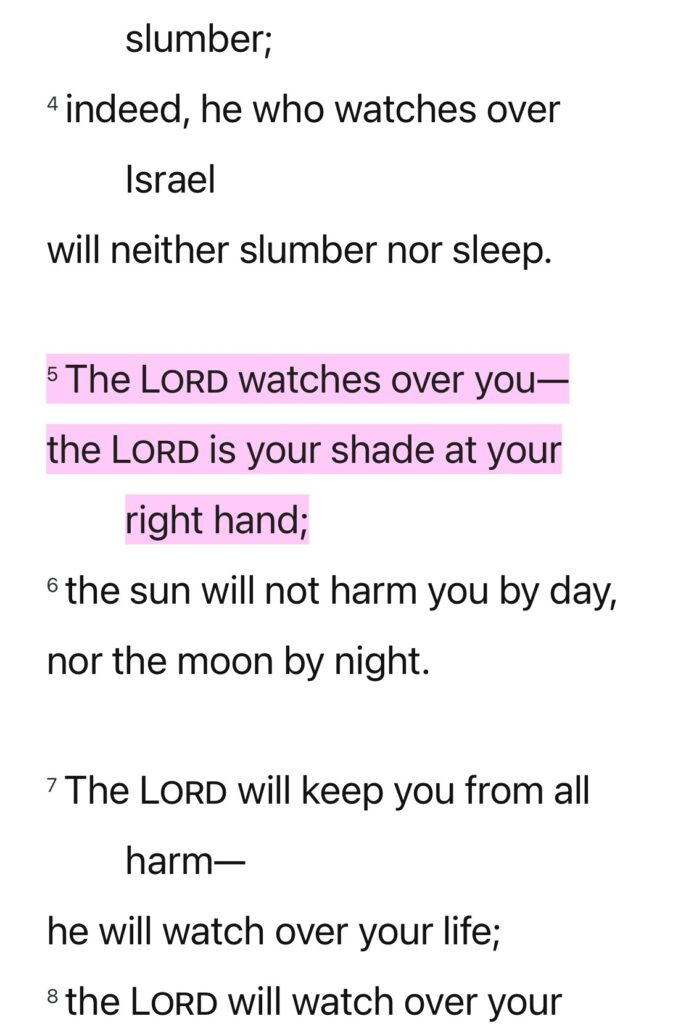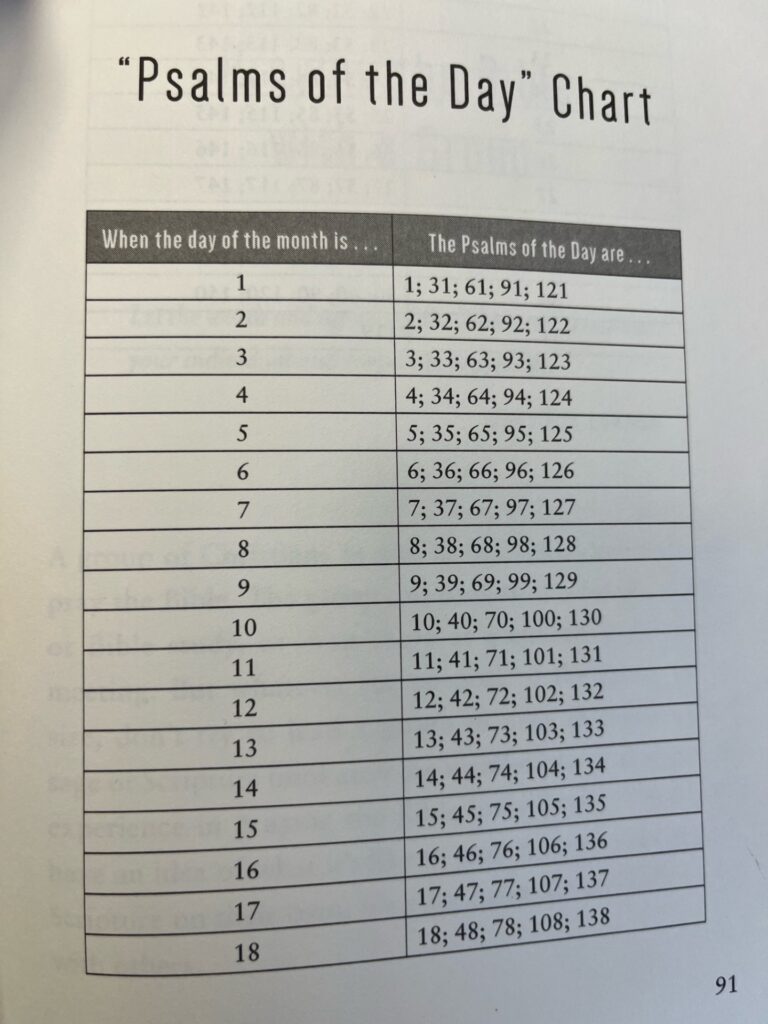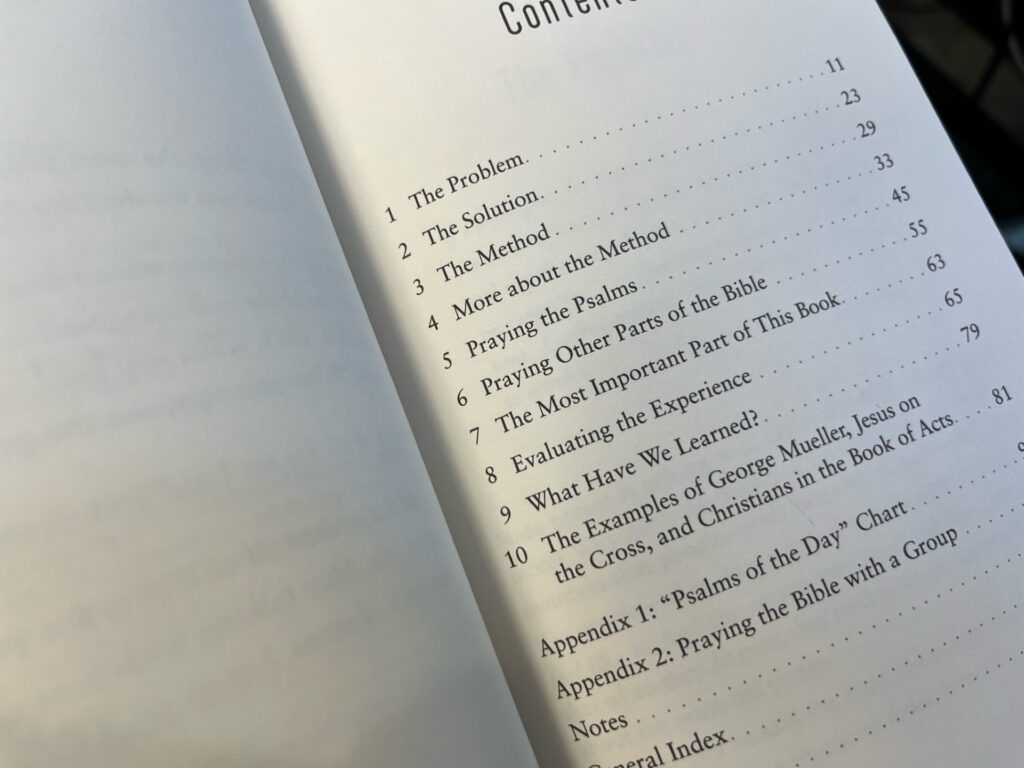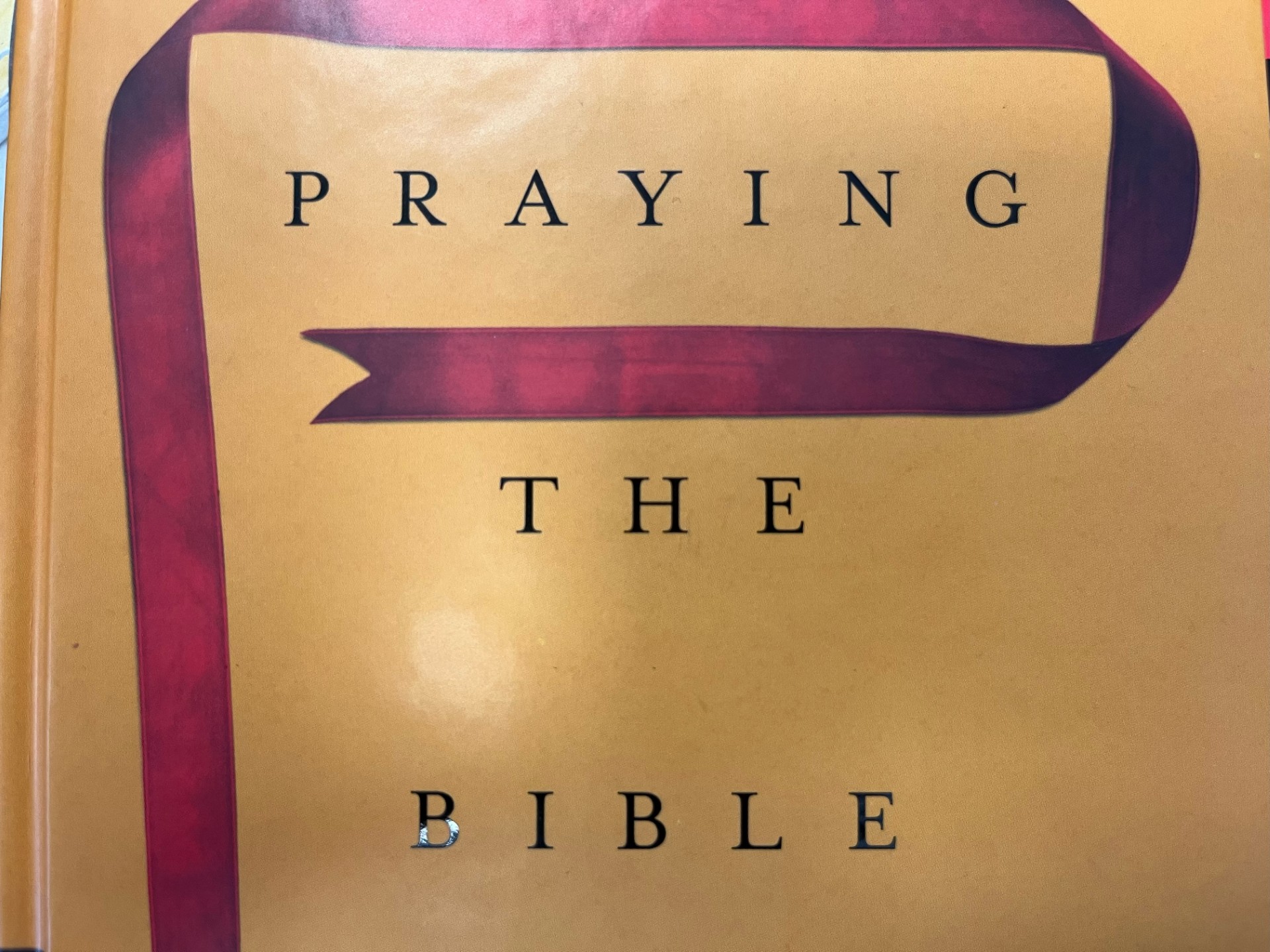Have you ever sat down, fully intending to have a rich, meaningful conversation with God, only to realize several minutes later that your mind has been wandering since you took a seat? Do you ever dread prayer, finding it boring or pointless feeling? Do you struggle to feel connected to God while you are speaking to Him?
Donald S. Whitney, professor of Biblical spirituality and associate dean at the Southern Baptist Theological seminary, suggests that the reason you may be feeling these issues is because you spend most of your prayer time “praying the same old things about the same old things.” He essentially points out that if you repeat the same basic thoughts every time you pray, it is bound to get boring. And so, in his book Praying the Bible he lays out how we can revamp our prayer life in a way that is more engaging for us and better directed towards God’s glory.
The Method
The method he describes involves taking a passage of the Bible and praying through it. He recommends starting out with the Psalms because they are essentially written to be prayed through. He suggests to go verse by verse and pray anything that comes to mind when you hear that verse. It does not have to be a direct interpretation of Scripture, you are merely using the passage as a way to guide your mind. He even says that if a verse is not giving you inspiration or you find it difficult to apply, you should simply skip over it.

Because the Psalms are the easiest, they are the best place to start. He describes a method using the Psalms of the day to help you select one that works well for what you are going through in life, while also giving you exposure to all of the Psalms overall. He says to start by skimming five Psalms: first the number Psalm of the day of the month, and then adding thirty repetitively gives you the other four. You choose the Psalm out of those five that you feel will help you the most and pray through it. This results in you not only praying a Psalm every day, but getting exposure to all 150 Psalms by the end of the month.
An important distinction is made between the easy Psalms or wisdom/ poetry books like Proverbs and other passages. He explains that the next easiest after Psalms is to try praying the New Testament letters, because of how they easily apply to believers’ lives. The only challenge with them is that you have to reconstruct them so that they are directed to God as opposed to man. However, the closer you get to narrative passages and styles of writing, the more likely it is you will have to do more of a broad prayer over the meaning of the passage. This is primarily due to the multitude of verses in narrative passages used for the setting of the story and other details that are not intended for prayer.
An Example
To demonstrate his method, I am going to use Psalm 121.
I lift up my eyes to the mountains—
where does my help come from?
2 My help comes from the Lord,
the Maker of heaven and earth.3 He will not let your foot slip—
he who watches over you will not slumber;
4 indeed, he who watches over Israel
will neither slumber nor sleep.5 The Lord watches over you—
the Lord is your shade at your right hand;
6 the sun will not harm you by day,
nor the moon by night.7 The Lord will keep you from all harm—
Psalm 121, NIV
he will watch over your life;
8 the Lord will watch over your coming and going
both now and forevermore.
Let’s say I begin with verse 1: “I lift up my eyes to the mountains— where does my help come from?” I then proceed to pray something along these lines: “God I feel desperate right now. I am really struggling to understand why my family is being torn apart by this conflict. I need help, but all of the people who I trust and have always thought would be my help have disappointed me. They are as destroyed by this struggle as I am.”
You then move on to verse 2: “My help comes from the Lord, the Maker of heaven and earth.” This brings you to pray to God, recognizing that He is the only one who can help you. You praise Him for His creation and say, “if you can make people out of dust, speak and mountains are formed, or turn a river to blood on a very whim, then I know you can aid me in my struggle.”

And so you continue on until you either finish the Psalm or run out of time. Maybe another Psalm that you pray through has a verse about the wrath of God being unveiled on the writer’s enemies and you not sure how to righteously pray that. Simply move on to the next verse. Another verse may have some metaphor or historical reference that you do not understand. Merely skip over it. The purpose of this exercise is to enrich your prayer life, not to interpret Scripture. It is ok if a verse leads you to pray outside of its context or about something completely unrelated, the point is that it leads you to pray.
The Benefits
- You will find yourself praying about a wider variety of topics. Reading through the many different verses in the Bible will bring to mind far more things than what you usually pray about. Maybe you start praying for a friend you have not seen in a while or a current event you are not very interested in. The passage brought these more obscure topics to your mind and now you are reaching out to the Lord about them.
- You will pray for your “same old things” in new ways. In the book, Whitney gives the example of a woman who wants to pray a blessing over her children every morning. Because she was praying through different passages every day, her blessing took on a new meaning each morning, making it far more meaningful for her children.
- You will feel more connected to God. God speaks to us through His Word. It makes far more sense for us to speak back to Him using His Word than babbling on with our own fragments of thought. As you meditate on His word and respond to it, not only are you having a full conversation, but you will find yourself using language like His more and more as well.
- It will be much easier to pray. Instead of struggling to get out anything interesting to talk about, you will find yourself having to stop due to lack of time. Consequently, prayer will become a more appetizing activity because it is enjoyable. You will be truly having a conversation with the one, living God, and it will feel incredibly refreshing after nearly recited prayers for years. You will also have a safeguard against getting lost in thought or distracted, a common issue for many Christians.
- You will be aligning more and more with God’s will in your prayers. While it is completely possible that you may misinterpret something or request something that God does not think it best to give you, your chances are far better if you are responding to God’s word than just saying random thoughts as they enter your mind. And praying for God’s will is a beautiful thing. Jesus demonstrated this multiple times throughout His ministry, and we all can agree He was closer to God than the rest of us.

Praying the Bible outlines a beautiful method of prayer that effectively capitalizes on the purpose and blessings of prayer. I have been using this method since I read the book and I have found that my prayers are far richer and carry more confidence. I love how using the Bible seems to fill me with words. I never have to scramble for something to say. It is a great way to grow closer to God. If you want more details, the book is a great resource to explore. However, anyone can put this into practice even if they do not have the book.
